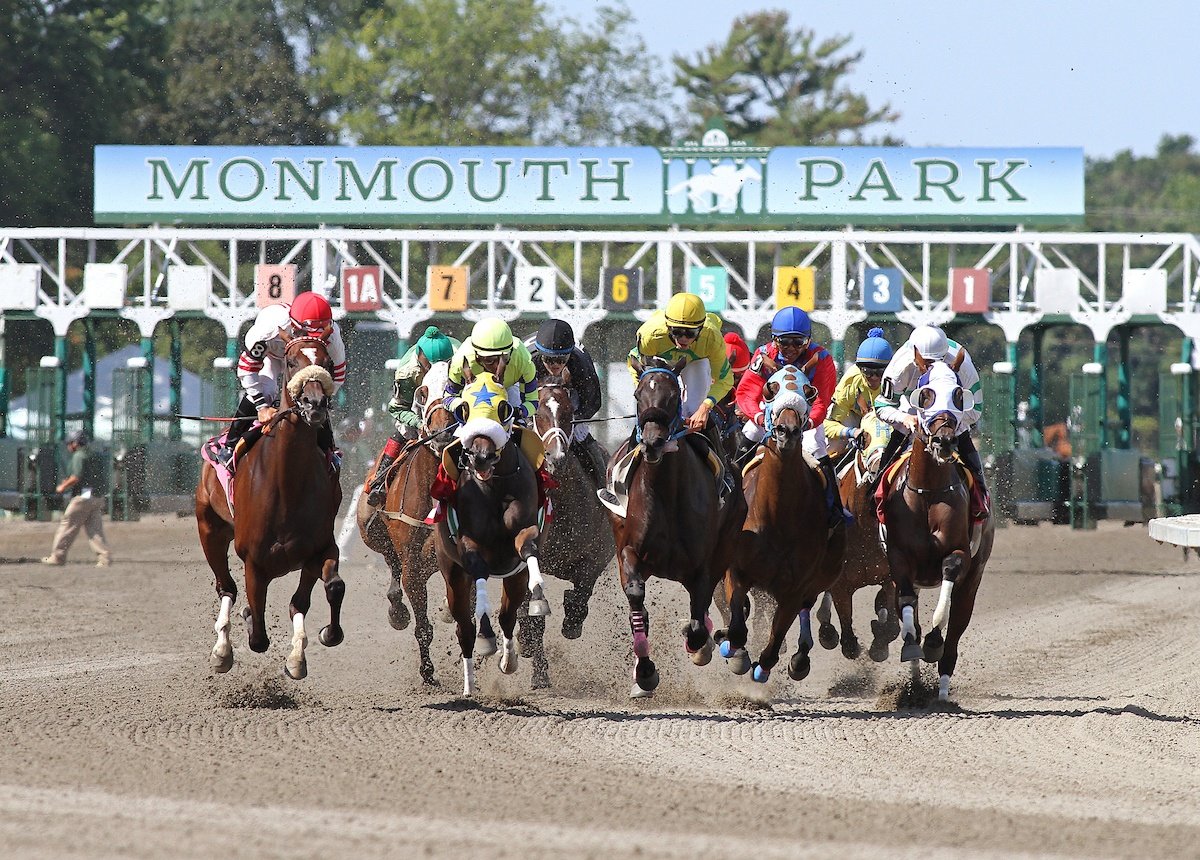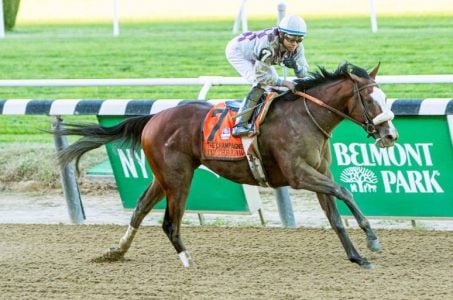Despite ‘Uncertainty,’ Monmouth Park Willing to Go First on Fixed-Odds Horse Racing in US
Posted on: February 11, 2020, 10:28h.
Last updated on: February 11, 2020, 11:27h.
Just as New Jersey opened the door for sports betting across the United States, it just might be the trendsetter for the next wagering innovation to hit America – fixed-odds horse racing.

Last week, the New Jersey Thoroughbred Horsemen’s Association and Darby Development LLC, which operates Monmouth Park, signed an agreement with BetMakers Technology Group to manage a fixed-odds product for Monmouth’s races.
Initially, BetMakers will limit the product to just standard win, place, and show betting, and offer it to the licensed sportsbooks within New Jersey upon regulatory approval. However, the agreement also allows Australian-based BetMakers to offer Monmouth’s fixed-odds racing on the international market, as well as bring other fixed-odds markets into New Jersey’s sportsbooks.
As part of the 10-year deal, BetMakers also has exclusive rights to market Monmouth’s races across the US, although that would likely require additional regulatory approvals on both the state and federal levels.
“I’m hopeful that five to 10 years from now, we’ll be talking about this being another innovative idea that’s been a game changer for the industry,” Dennis Drazin, Darby’s chairman and CEO, told Casino.org.
The partnership would start officially in May, when Monmouth’s meet begins.
Fixed Odds Successful Elsewhere
Offering fixed odds has helped the sport in other markets, BetMakers COO Jake Henson told Casino.org. Namely, in Australia, where the sport has grown from a AUS$10 billion pari-mutuel handle sport more than a decade ago to an AUS$25 billion sport now. Fixed-odds wagering, Henson said, has accounted for almost all of that growth.
As a result, the sport essentially doubled its purses over the past decade, he added.
That’s been a major concern for many US horsemen and other stakeholders. In traditional pari-mutuel betting, the tracks typically hold up to 20 percent of the betting pool to pay for the purses. Fixed-odds racing typically features a smaller hold, more akin to what sportsbooks manage for other games.
The difference, Henson said, is that with fixed odds, BetMakers has learned that casual bettors will wind up playing longer, which means that tracks will make up the difference in betting volume.
“We see fixed-odds handle to become complementary to the tote revenue in the US, like it did in Australia,” Henson said. “We have observed what did and didn’t work in Australia over the past decade, and have a range of strategies to not only increase overall industry revenues, but reinvigorate the host track pools and bring life to the exotic bet type products.”
He added that fixed-odds wagering is also responsible for nearly all of the betting that takes place on British races. According to data from the UK Gaming Commission, £4.22 billion ($5.46 billion) was bet on races there from April 2018 to March 2019.
‘Somebody has to be First’
Drazin said he’s talked with racing officials at other tracks about offering a fixed-odds product to the betting public.
In the past, some key stakeholders have expressed reservations about offering fixed odds. Drazin told Casino.org that he’s willing to take the first step – just like he did when he tried to open a sportsbook at the New Jersey horse racing track six years ago. While a court order initially blocked Monmouth Park from opening the sportsbook, it led to the Supreme Court ruling that eventually allowed states to legalize sports betting.
There’s a lot of uncertainty,” Drazin said. “I think at the end of the day, somebody has to be first, and I think this is good for our industry and I think it’s something we should do. And look, I may be right and I may be wrong, in terms of the compensation rates that we’re getting. But if you never do anything to try and improve your business, then shame on you.”
In order to offer Monmouth Park’s fixed-odds product, sportsbooks would need to agree to pay a portion of its handle back to the track as a rights fee.
The MonmouthPark-BetMakers deal comes at a time when horse racing is at a crossroads in the country, and not just because of concerns about equine safety.
In 2019, the total handle on US horse racing was $11.04 billion. It marked the second straight year that the handle topped $11 billion. But it also represented a 2 percent drop from 2018 and the first decline in five years. Still, the industry is more than $4 billion off its peak years, which occurred at the turn of the century.
Appealing to a New Audience
Drazin isn’t alone in his vision for the sport’s future. The Thoroughbred Idea Foundation has supported fixed odds as a way to attract new bettors to racing. The industry think tank has noted that many US tracks already enable European bookmakers to offer fixed odds on their races.
On Twitter, Pat Cummings, the foundation’s executive director, called the BetMakers-Monmouth Park fixed-odds partnership great news for the sport.
Besides the high takeout, pari-mutuel betting has long been criticized by both casual and long-time horseplayers. Nothing is more frustrating than to jump on a horse when odds are lucrative, only to see more people climb aboard and dilute potential winnings.
In addition, the system that updates the odds doesn’t have all betting information from across the country tabulated by the time the horses break from the gate. That means a horse’s odds may change again before they hit the wire.
“I think that we have to try and appeal to a younger generation, that the demographics seem to be younger with sports betting and with other modes, a quicker reaction to this,” Drazin said. “People, the younger people in particular, I think, will find fixed-odds wagering better and more interesting. And I think ultimately, if – and I’m not saying this will happen – I’m just saying there’s a potential for you to appeal to a lot more customers through offering this type of wager across all of your sports betting.”
Related News Articles
Road to Kentucky Derby Features Three Stakes Races on Saturday
Most Popular
Mirage Las Vegas Demolition to Start Next Week, Atrium a Goner
Where All the Mirage Relics Will Go
Most Commented
-
Bally’s Facing Five Months of Daily Demolition for Chicago Casino
— June 18, 2024 — 12 Comments
















Last Comment ( 1 )
They will have to limit last minute, high dollar, amount bets or they will be dealing with more problems than just paying off the winners.